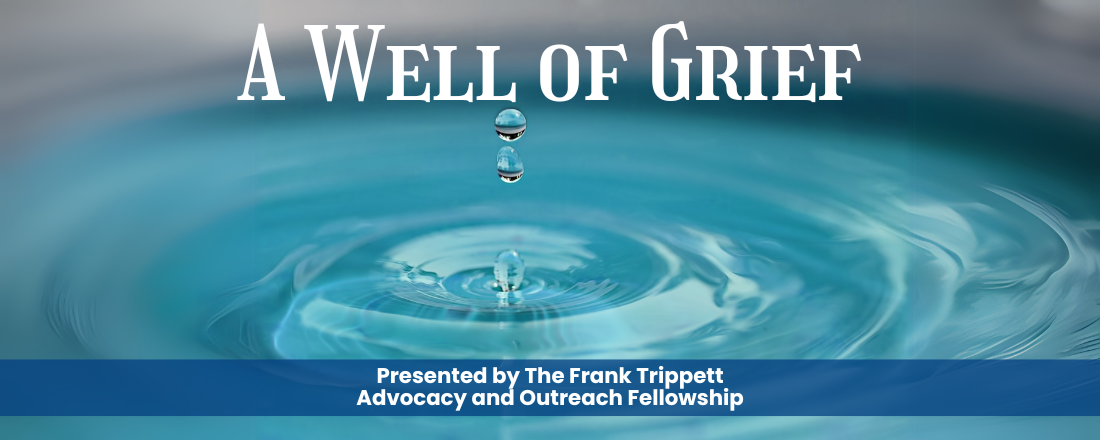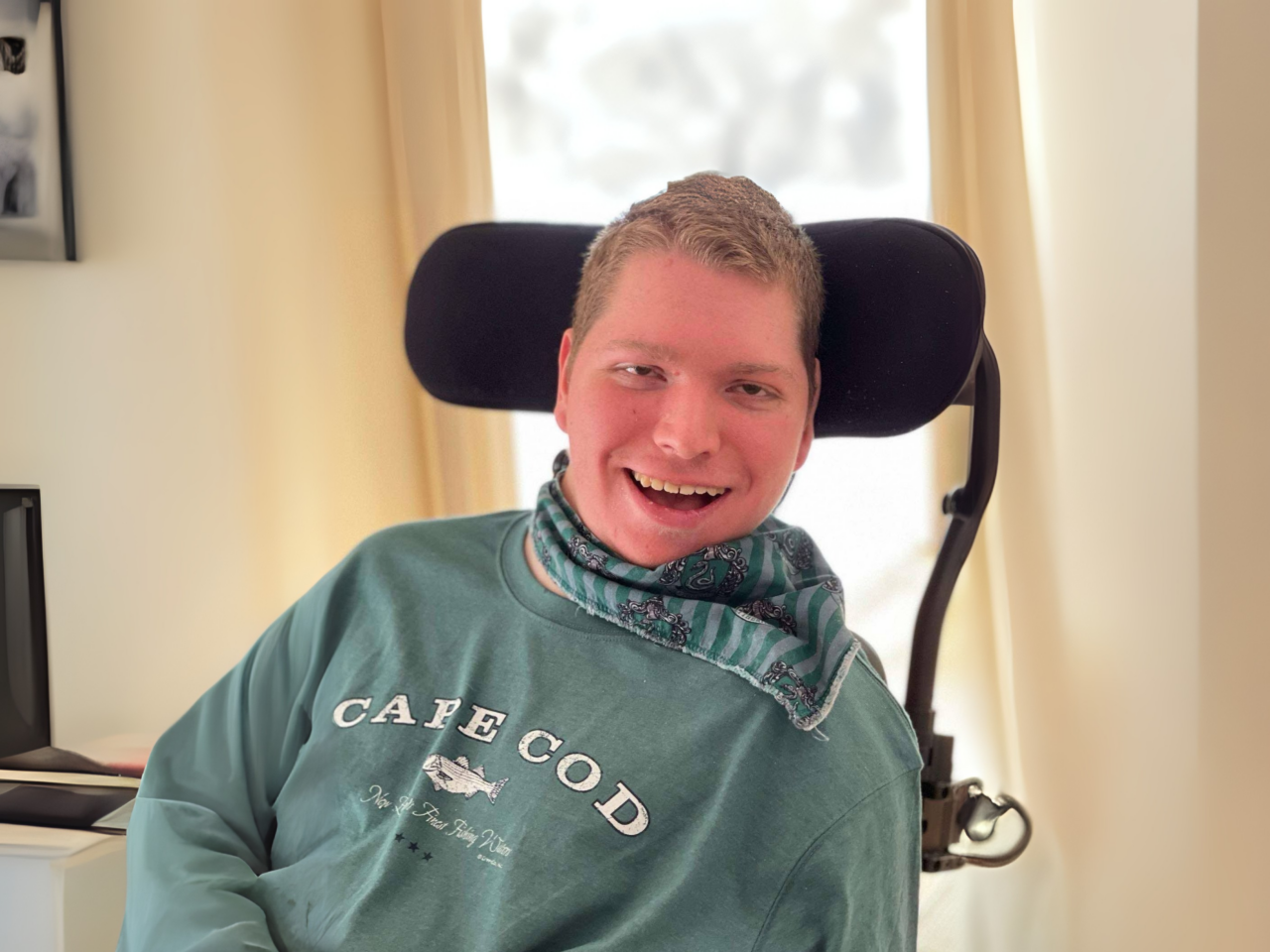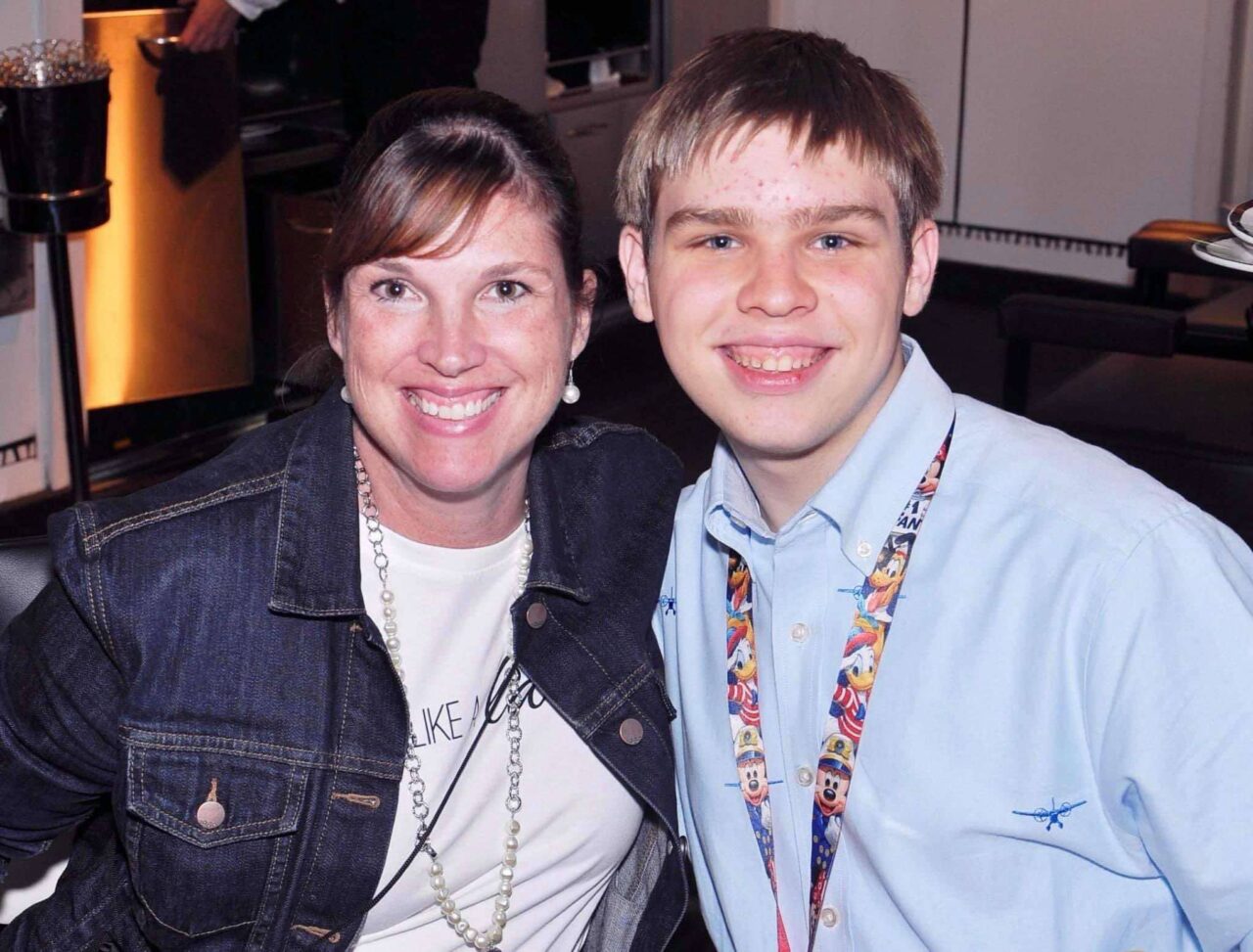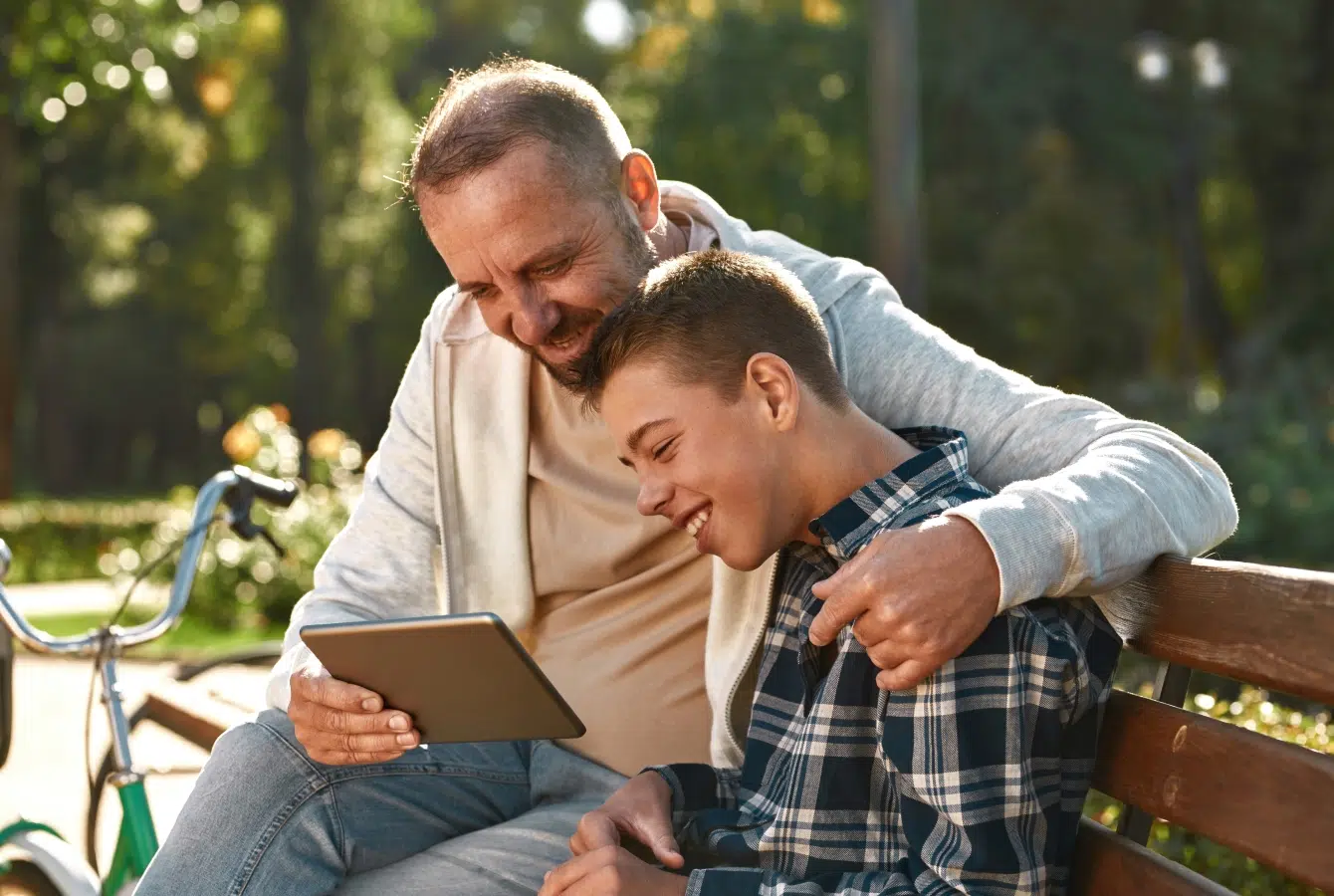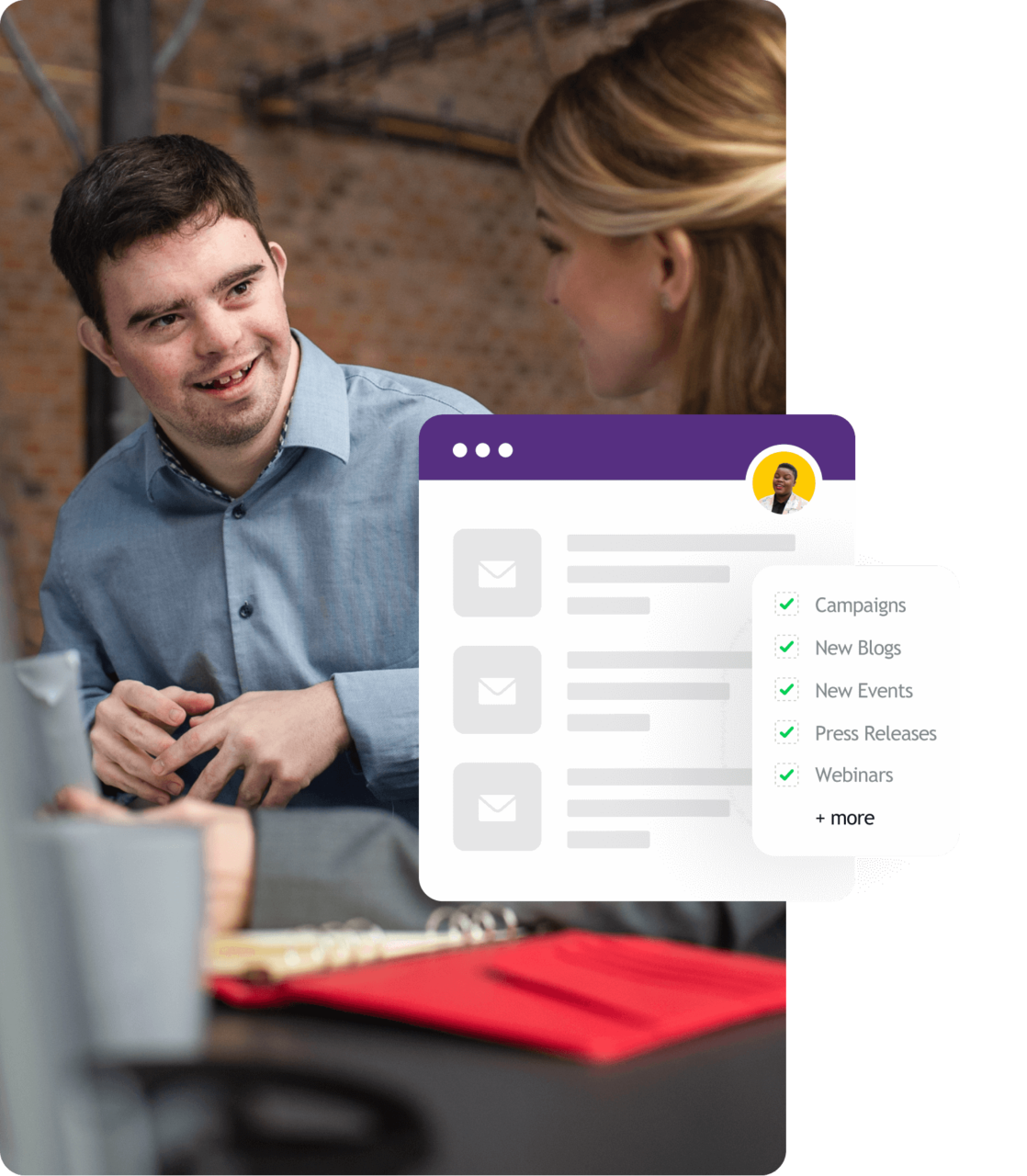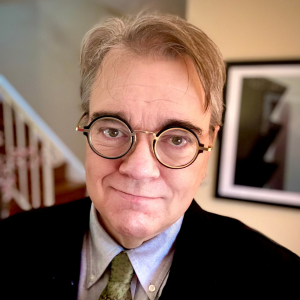
Rob Hudson is a Frank Trippett Advocacy and Outreach Fellow, and Digital Communications Manager for The Arc of Northern Virginia. Rob’s advocacy on behalf of his daughter, Schuyler, who has a rare disorder called polymicrogyria, has guided his personal philosophy for the past twenty years.
A Well of Grief
I was speaking with a group of parents a few weeks ago, and the topic of fear came up. These were all parents like myself who have kids with disabilities who have left school, or will soon, and are stepping into a world where they are no longer children and no longer under the protection of public education. There was some general agreement about what we believed our worst fear was about.
“When I think of what will happen to my child after I’m gone, my blood runs cold,” someone said. “It’s my worst fear, that they’ll be left without the care they need. It keeps me awake at night.”
We all agreed that we also felt that fear, and that it felt like the most daunting outcome we could imagine. Even as we discussed it, however, I knew we weren’t quite right.
There is a worse fear. There’s a possibility that is so frightening and so unfathomable that we don’t speak it out loud. For many of us, I suspect it’s not even something we entertain in our conscious thoughts, although I assure you it is there on some level. It’s the thing that we silently catastrophize about.
We dread the possibility that we will experience a loss that is beyond our capacity. It’s the fear that we will one day experience the loss of our own child.
I follow several groups on Facebook for families of people with polymicrogyria (PMG), the brain malformation that my own daughter was born with over twenty-five years ago. We’re a small group, the parents of our own “polymicrogyrians”, and if it weren’t for online supports, we would likely go our entire lives without ever meeting another person who’d even heard of PMG, much less had a family member like ours. But online is where we know each other, and it’s where we occasionally face that worst fear for us, the one we can barely make ourselves name out loud, much less talk about.
It is in these online support groups where we learn of the death of a PMG child, someone who has become dear to us all and whose life and circumstances are so very much like our own.
I find it very difficult to read those stories. Some are about young people who present very much like my own daughter, except that their luck ran out where hers has not. It’s hard to read about, but I also feel like I have a responsibility to do so. Certainly to these families because their pain deserves to be seen and acknowledged, but also to my daughter, because the worst thing I could ever do for her is to allow myself to forget that every day she lives with her unusual and unreliable brain is a gift.
It was through an online PMG support group that I came to know Julie Polk Hasselberger, founder of the largest of these groups and mother of Daniel. And was in this same group one day in January of last year that we all read the terrible news of Daniel’s death at the age of twenty-six. It hit all of us hard, mostly because we had come to know Daniel through Julie’s writing and her advocacy. Families are often what you make in life, and the PMG family is very real.
But honestly, a small part of our reaction to Daniel’s passing undoubtedly resulted from our fear for our own children, kids who live lives and faced challenges very much like his.
Daniel’s end felt too close, like a next-door neighbor’s house burning to the ground. Daniel and Julie were us.
A little over a year later, Julie is still struggling to find her place in the world without Daniel and the intense level of commitment to his daily life that she had embraced entirely.
“After twenty-six years of advocating, caring, and basically living life for two people, Daniel’s death left me gutted,” she says. “I miss him. And I don’t quite know who I am anymore. The grief is far more intense than I ever could have imagined.”
That pain changed how Julie experienced the world, and also how she thought about advocacy, once the center of her daily life. For an advocate as busy, as experienced and most of all as committed as Julie, losing her son meant reexamining so much of her own identity.
“Not only do you lose a child, but you also lose a world, a purpose, income, satisfaction, the energy of hyper vigilance, and the role of being that person providing a complete life for another person. Like many other Moms I know, I gave up my career, my advanced degrees, and my desire to have financial independence, in order to step out of that world, and into being Daniel’s everything.
“After he died, everything stopped. Nurses. Therapy. Giving showers. Playing outside with bubbles and wind chimes. Managing the budget for his vocational day program. Paperwork. Doctors. Hospitals. Tests. Repairing equipment. Getting new supplies. Watching Disney movies. Doing art together. Going for walks. Going for drives in the wheelchair van. Special needs groups and activities in town.
“The house became silent. Just the ticking of a weird old clock.”
I’ve watched Julie for years, advocating for this community she loves with Daniel by her side. Her loss is both immense and recent, and she’s only just beginning to examine what her role as an advocate for this community could look like in the future.
“So now I am often gently asking myself ‘Who do you want to be now? Who are you now, after all that you have been through?’ And I don’t know. I have deep compassion and love and empathy which is why I stay connected in the PMG group I started in 2008.
“As far as advocating? I am still not sure how much I can handle. But maybe someday. On some level for sure. My heart is simply too broken to be able to focus there, at this time anyhow.”
I hope she gets there. I suspect she will.
